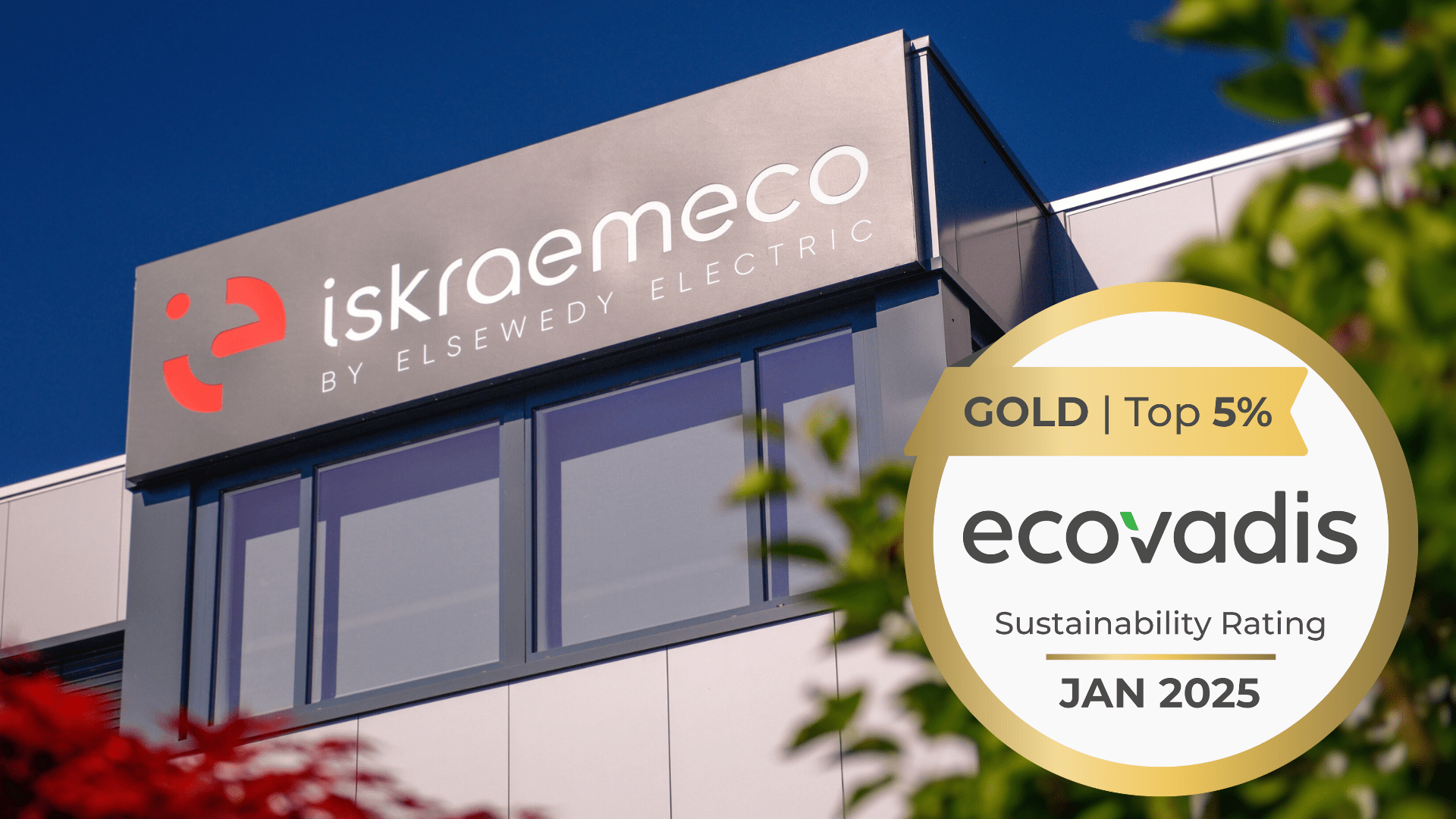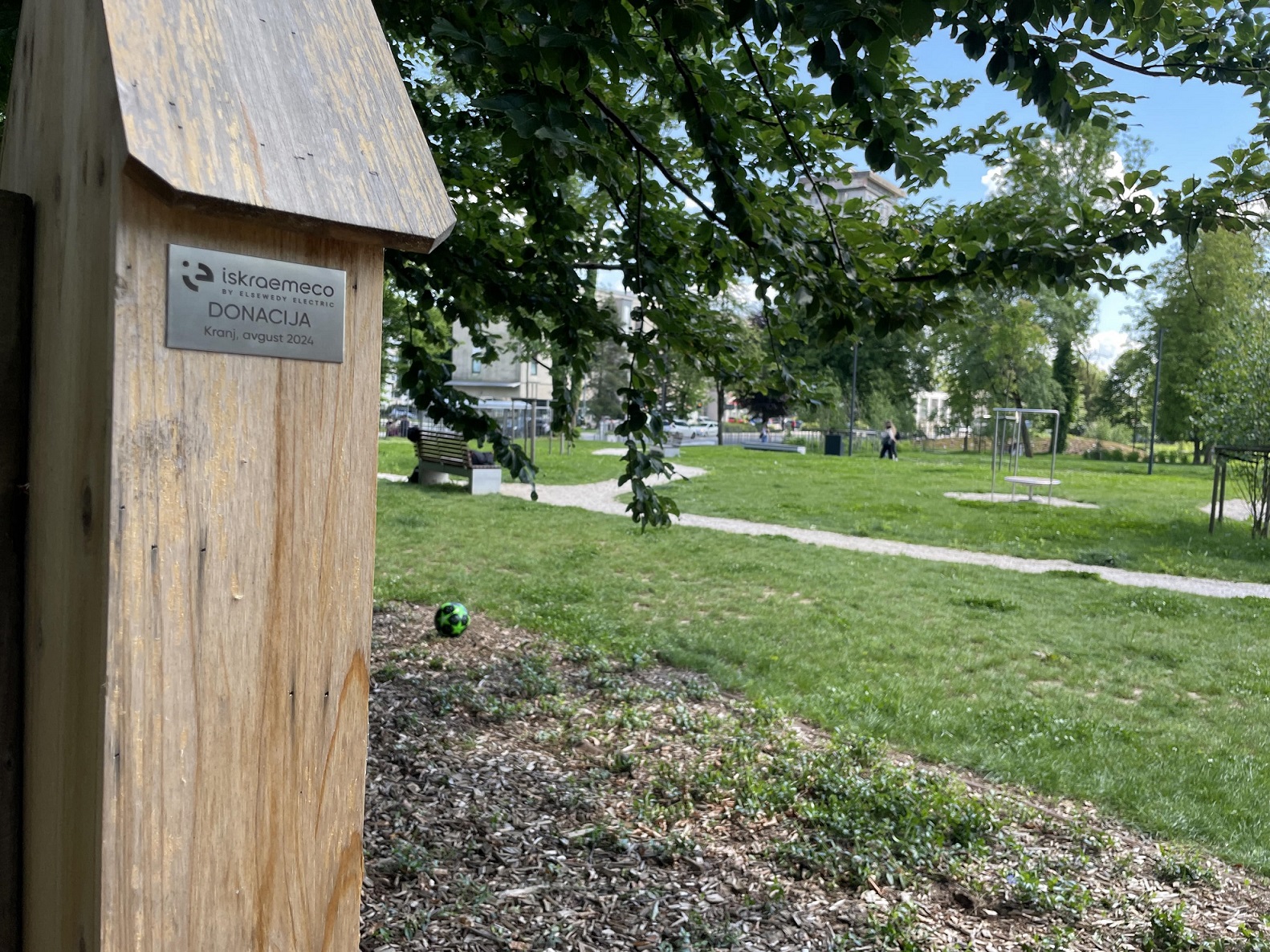We invite you to read the full interview and discover how Iskraemeco is setting new benchmarks for responsible business practices in the industry.
Sustainable development is crucial to Iskraemeco’s activities. What are the key pillars of your sustainability strategy and how do they fit in with the company’s long-term goals? What are the key milestones you have achieved in this area over the last ten years?
As a company that develops smart meters and digital solutions for more efficient energy management, sustainability has been deeply embedded in our strategy from the very beginning. Our sustainability strategy is closely linked to our overall business strategy and is based on our key impacts. We have built it around six pillars: climate-conscious products and solutions, reduced and renewable energy consumption, circular economy, responsible and transparent supply chain, fair and inclusive social conduct, and long-term, reliable partnerships. These pillars comprehensively represent our sustainability efforts with the overarching goal of decarbonizing both our company and our supply chain.
Over the years, we have made excellent progress in all ESG areas. Since 2013, we have continuously reduced our carbon footprint and energy consumption per product. As a member of the UNGC, we actively promote its principles and publish a UNGC sustainability report every year.
Since 2015, we have been working with a Dutch company to increase transparency in the use of materials through the Fair Meter Project. This initiative focuses on ethical sourcing, resource efficiency and the principles of the circular economy. In December 2023, we installed our own solar power plant, which covers more than 25% of our electricity needs. In 2024, we achieved our long-standing goal of zero waste disposed on landfills.
We have made steady progress on our sustainability journey, and we look forward to driving our ambitions even further in the future.
In 2024, you adopted a new sustainability strategy, carried out a double materiality assessment and integrated the sustainability department. What significant changes to the content of the sustainability strategy have resulted from last year’s efforts and the new strategy?
Even though we have been actively working on sustainability for many years, these efforts have often been focused on a smaller group of people, as is the case in many companies. In 2024, we took a significant step forward by integrating the sustainability department into the Strategy department and strengthening our ESG governance. We have established a Sustainability Steering Committee consisting of top management and the heads of key departments, including Quality, Legal and Compliance, Production and Manufacturing Engineering, Supply Chain, HR, IT, TDC/R&D, etc. This structure enables us to ensure that sustainability is truly embedded in all functions.
Beyond this, our approach to sustainability is increasingly driven by business needs, market requirements and evolving regulatory frameworks – in particular the new EU directives. While these regulations can be demanding, they force us to constantly improve and set higher standards for ourselves.
How important is it for you to participate in social initiatives and work with local communities? One of the projects in this area is the Green Penguin, which was launched in 2020 as a result of winning the Ljubljana Climathon. What are the initial reactions of the participants and what are your plans for the project?
Having been based in Kranj for over 80 years, we have always had close links with the local community and actively seek opportunities to engage with them. We work with local schools and universities by offering scholarships for students, internships, mentoring programs, and educational visits to our facilities. We are also part of the Kranj Climate Pact, in which we have committed to helping the city achieve its climate goals. In addition, we support local cultural initiatives, such as folklore groups, as the preservation of cultural heritage is very important to us.
The “Green Penguin” project is one of our key initiatives in the field of environmental education. After winning the Ljubljana Climathon 2020, we worked on turning the concept into a real, scalable project. The Green Penguin is an interactive educational platform that helps schools engage students in climate action by tracking their energy consumption and adopting sustainable habits. The response has been positive — schools and teachers appreciate the gamification aspect and the way it makes sustainability tangible for students. In the future, the platform will be available to any school that wants to join and include sustainability topics in the children’s curriculum.
How do you assess the sustainability aspects of your solutions and products with regard to your activities and the development of solutions and products? When can you describe a product as sustainable?
Our products and services are unique because they inherently contribute to sustainability goals from a functional perspective. By supporting grid flexibility, they enable smoother integration of renewable energy sources. They also enable end users to better manage their energy use, make informed decisions and optimize their consumption based on up-to-date data.
For us, however, sustainability goes far beyond product functionality. It is important that we look at resource use, material sourcing and ethical supply chains. We place great emphasis on eco-design principles — minimizing material usage and constantly testing ways to incorporate recycled plastics into our smart meters. Our meters are designed to be easily assembled and disassembled, making them highly recyclable.
Transparency of the supply chain is another important aspect. We track our manufacturers and their commitments to ESG standards and laws via our Supplier portal. We carry out risk assessments and audits of our suppliers and prioritize local and EU suppliers. This is not only due to the stricter legal framework, but also to the labor and human rights standards. In addition, as part of our efforts to decarbonize our supply chain, we actively avoid long-distance transport, especially air freight, and prefer environmentally friendly alternatives instead.
Because product sustainability is such a complex and multi-layered issue, we are careful not to label our products as “sustainable”. Instead, we focus on continuously improving in all of these areas, including paying particular attention to continuously reducing the energy consumption of our appliances in production.
In order to really implement all of the company’s sustainability commitments, it also depends on the employees. How do you engage your employees in the company’s sustainable activities? What educational initiatives do you run to raise employee awareness and skills in relation to the company’s sustainability goals?
Following the establishment of the Sustainability Steering Committee, which is consisting of top management and department heads, we have recognized that we need both strong leadership commitment and broad employee engagement to successfully implement ESG initiatives. To bridge this gap, we have introduced Sustainability Ambassadors — experts from different areas such as Energy, Environment, Manufacturing Excellence, IT, HR, Legal, Marketing, Product Management. These ambassadors provide expert insights, support projects and help to integrate sustainability into all aspects of our business activities.
To further raise ESG awareness, we regularly publish internal and external articles about our sustainability efforts. In addition, we have introduced targeted employee training programs, including sustainability onboarding for new employees and ESG awareness workshops tailored to different departments. Our goal is to ensure that sustainability is not just a top-down initiative, but an integral part of our company culture where every employee feels empowered to make a contribution.
In addition, we recently received the “Family Friendly Enterprise” certificate to strengthen our HR management, with a focus on helping employees to achieve a good work-life balance. Motivated employees are the key to ESG’s success – real progress is not possible without them.
As part of the CSRD (Corporate Sustainability Reporting Directive), you are also committed to report on sustainability. How are you preparing for the first review of your sustainability reporting in accordance with the CSRD Directive in 2026? What challenges are you already facing in collecting data for these reports?
We are already in the midst of preparations for CSRD reporting. Given the complexity of the CSRD Directive and the ESRS (European Sustainability Reporting Standards), we have decided to publish a pilot (transition) sustainability report aligned with the ESRS standards in 2025. This approach will allow us to test our data collection processes before full implementation.
One of the biggest challenges was adapting our data collection system to the new, much more comprehensive ESRS requirements. Here, cross-departmental collaboration combined with the use of a BI tool proved to be key, as ESG reporting requires input from virtually all business areas. Fortunately, we started familiarizing our teams with the CSRD requirements several years ago to ensure they were prepared for the transition.
Perhaps the most valuable lesson from this process is the importance of developing a systematic approach to assessing business risks, impacts and opportunities. We realized that CSRD is not just a compliance exercise or a “tick on the checklist,” but provides valuable insights into business strategy, risk management and future opportunities. The process itself has already helped us to better align our sustainability goals with our long-term corporate vision.
To achieve sustainable business growth and climate neutrality, we also need a new regulatory environment and new standards. How actively are you involved in the formulation of policies, regulations, standards and financial incentives in the area of climate protection?
We recognize that achieving climate neutrality requires a supportive regulatory framework and new standards, and while we are involved to some extent, there is certainly room for us to be more active in shaping policies, regulations and incentives.
However, we are represented at a European level — our Global TDC Director is a member of the ESMIG Executive Committee. ESMIG (The European Association of Smart Energy Solution Providers) plays a key role in strengthening Europe’s strategic autonomy, ensuring a level playing field in the internal market and accelerating the energy transition through smart technologies — an area in which our company is very active.
In addition, we are a member of the Slovenian Chamber of Commerce and Industry (GZS), AmCham and of course, CER, where we participate in discussions on regulatory developments and progress in the industry.
You have already received several awards for your sustainability efforts, including international ones such as the EcoVadis Gold Medal. What do such awards and recognitions mean to you and how do they affect your work?
In 2023 we received our first EcoVadis medal — a silver medal — and in January 2025 the gold medal. This recognition is a testament to our continuous progress and an important affirmation of our commitment to ESG excellence. It is also a recognition for our employees that we are on the right track and that their efforts in the areas of sustainability are being recognized.
Awards such as EcoVadis serve as objective evidence to our stakeholders that we are a responsible company committed to ethical business practices, environmental protection and social responsibility. They are not just a “badge of honor” but rather motivate us to push our sustainability initiatives even further and raise the bar for corporate social responsibility.
The gold medal means that we are one of the best performing companies in our industry, but it also comes with a responsibility – We must constantly improve and innovate in the area of sustainability. Our aim is not only to maintain high ESG standards, but also to set new benchmarks for responsible business practices in our industry.




